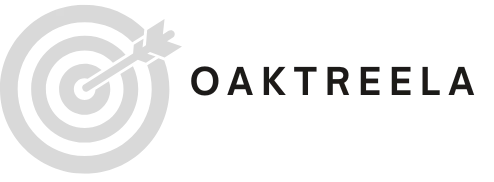Table of Contents
ToggleBuying a home can feel like a daunting challenge, especially when it comes to saving for that hefty down payment. But what if he told you there are mortgage options that let you waltz into homeownership with a low down payment? That’s right! You don’t need to sell a kidney or start a side hustle just to snag the keys to your dream castle.
Understanding Mortgage Options With Low Down Payment
Mortgage options with low down payments provide opportunities for aspiring homeowners. FHA loans enable buyers to secure financing with a down payment as low as 3.5%. USDA loans cater to rural property buyers with zero down payment requirements, promoting homeownership in less populated areas.
VA loans support veterans and active-duty military personnel. These loans often require no down payment and offer competitive interest rates. Conventional loans typically demand a 5% down payment but can allow for lower payments through private mortgage insurance (PMI).
Lenders assess several factors when considering low down payment options. Credit scores often influence the eligibility for specific loan types. Borrowers with a credit score above 620 generally qualify for various mortgage options, while those below may face additional restrictions.
Homebuyer assistance programs help cover down payment costs. These programs may offer grants or low-interest loans, making home ownership more accessible. Local and state programs frequently provide assistance based on income and location, which can make a significant difference.
Understanding the requirements of each mortgage type ensures informed decision-making. It’s crucial to compare interest rates, mortgage insurance costs, and overall expenses. Engaging with a knowledgeable mortgage broker can clarify options and streamline the lending process.
Exploring these low down payment mortgage options makes homeownership attainable without financial strain. Assessing individual circumstances helps identify the most beneficial mortgage solution.
Types Of Mortgage Options

Multiple mortgage options facilitate low down payments, making homeownership achievable for many. The following sections detail specific types of loans available.
FHA Loans
FHA loans offer down payments as low as 3.5%. These loans cater to first-time homebuyers and those with lower credit scores, easing the path to homeownership. Borrowers may finance mortgage insurance premiums within the loan itself. Many appreciate the flexible qualification requirements, allowing for higher debt-to-income ratios. Additionally, FHA loans encourage buyers who might struggle with larger upfront costs.
USDA Loans
USDA loans provide zero down payment options for eligible rural and suburban areas. These loans intend to boost homeownership in less populated regions. Income restrictions apply, ensuring that assistance reaches those who need it most. Borrowers can benefit from lower mortgage insurance costs compared to FHA loans. Property must fall within designated USDA areas, promoting community growth.
VA Loans
VA loans frequently require no down payment for eligible veterans and active-duty military personnel. Lower interest rates further enhance their appeal. No private mortgage insurance exists with VA loans, saving borrowers money in the long run. Flexible credit requirements also help many qualify, even if they have less-than-perfect credit histories. Access to varied loan terms allows veterans to find suitable repayment options.
Conventional Loans
Conventional loans typically demand a minimum down payment of 5%, though some programs allow for even lower amounts. Borrowers might eliminate monthly private mortgage insurance by achieving an equity level of 20% or more. These loans often feature lower overall borrowing costs than government-backed options. Lenders evaluate credit scores rigorously, impacting interest rates and terms. Assistance programs may provide down payment solutions for qualifying borrowers, enhancing affordability.
Benefits Of Low Down Payment Mortgages
Low down payment mortgages provide both financial flexibility and access for many potential homeowners. These options make purchasing a home less daunting for buyers with limited savings.
Affordability
Affordability enhances the appeal of low down payment mortgages. Buyers can invest in homes without needing substantial upfront costs. For example, FHA loans require as little as 3.5% down, allowing buyers to save funds for other expenses like closing costs and home maintenance. Many conventional loans now offer alternatives that reduce the upfront financial burden. This enables individuals to enter the housing market sooner, making homeownership more attainable.
Access For First-Time Buyers
Access for first-time buyers significantly improves due to low down payment options. Buyers can qualify for various programs designed with them in mind, such as USDA loans that provide zero down payment opportunities in rural areas. These mortgages offer flexibility that suits first-time homebuyers, making the dream of owning a home more achievable. Programs targeting this demographic often consider individual financial situations, ensuring that new buyers can take the next step without overwhelming financial strain.
Considerations When Choosing A Low Down Payment Mortgage
Choosing a low down payment mortgage requires careful evaluation of several factors. Key considerations include credit score requirements and the implications of private mortgage insurance (PMI).
Credit Score Requirements
Lenders typically set specific credit score thresholds for low down payment mortgages. FHA loans accept scores as low as 580, while some may allow scores down to 500 with higher down payments. USDA loans usually require a minimum score of 640, ensuring applicants demonstrate creditworthiness. VA loans, on the other hand, do not mandate a minimum score, but higher scores can ease the approval process. Conventional loans often expect a score of at least 620. Higher credit scores can lead to better interest rates and loan terms, impacting overall affordability.
Private Mortgage Insurance (PMI)
PMI often comes into play with low down payment mortgages. Conventional loans requiring less than 20% down typically include PMI to protect lenders from default risk. Monthly premium costs can vary based on loan size and credit score. For FHA loans, an upfront premium along with monthly premiums applies. USDA loans do not require PMI, but they do include an upfront fee and monthly assurance fee. Understanding PMI costs is critical, as these additional expenses affect monthly payments. Potential homebuyers should factor in the impact of PMI when assessing total mortgage affordability.
Exploring low down payment mortgage options opens doors to homeownership for many. With programs tailored for various financial situations, potential buyers can find solutions that fit their needs. Understanding the nuances of each loan type and the associated requirements is vital for making informed choices.
Engaging with experienced mortgage brokers can provide valuable insights and guidance throughout the process. By leveraging these resources, aspiring homeowners can navigate the path to owning a home without overwhelming financial burdens, turning their dream into reality.







